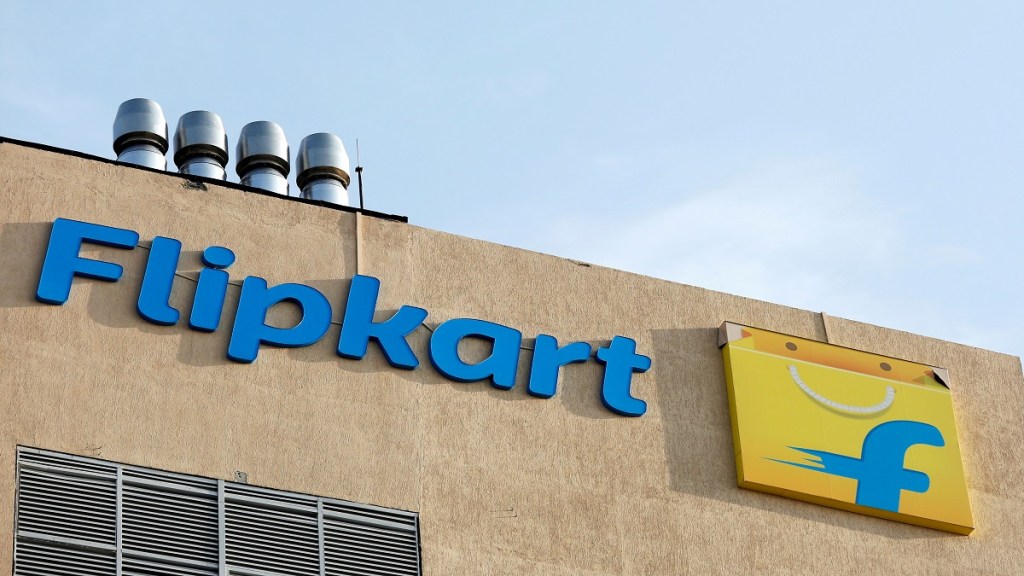Small sellers on Flipkart say they are incurring losses after the platform introduced a new rate card policy on May 18. The new rules deprive sellers of the flexibility to revise prices. While it has been several weeks since the new rules kicked in and the concerns have been voiced, the issues, they claim, remain unresolved. Vendors are upset they cannot revise the pricing for the festive season sales and may be stuck with inventory they had set aside for Flipkart.
Sellers that FE spoke to said they are required to disclose the profit margin unlike in the old system, in which they were free to fix the prices. The system calculates the earnings. Most small sellers claim this is eating into their profit margins.Flipkart said in a statement, the “simplified rate card policy is aimed at optimising growth avenues for sellers while enhancing settlement transparency”.
E-commerce and sellers’ associations say Flipkart had initially told them it was a temporary issue and they were redoing the system. “The issues persist. We are still waiting for Flipkart to get back on this. If not, then this behaviour is inappropriate and anti-competitive and we might have to look at other avenues,” Vinod Kumar, founder trustee, Forum for Internet Retailers, Sellers and Traders (FIRST) and SME India Forum said.“Flipkart is stopping us from updating prices and this will result in new SKUs getting blocked,” said a seller.
“They cannot legally force any seller to sell on a particular price point on a marketplace model,” said another seller, who has now made 95% of his portfolio inactive. Sellers contend that the foreign direct investment (FDI) policy disallows marketplaces from directly or indirectly influencing the sale price of goods or services and require them to maintain a level playing field. Kumar said most marketplaces allow sellers to sell at whatever rates they want.
“As long as sellers are selling below or at the MRP (maximum retail price), marketplaces should be fine with that. They can advise us about the right price but there is no mechanism where somebody can dictate the price,” Kumar said. Around 25 sellers have reached out to FIRST so far, though many more have been impacted. FIRST has deployed half a dozen consultants to look into the matter. A seller from Kolkata, whose annual turnover on Flipkart was `64 lakh, told FE he has stopped selling on Flipkart since May 27, making his portfolio inactive.
This has resulted in a loss of around `85,000.He prefers selling on Amazon and Meesho at higher prices as selling on Flikpart, he says, would pull down his margins. “The seller is stuck with a lower price on Flipkart and might have a higher price on Myntra or Meesho or Amazon,” Kumar said, explaining buyers typically buy where products are the cheapest.Abhishek Singh, chief advisor, The Entrepreneur Association of India, said sellers whose vendor code has already been generated are particularly finding it difficult. “This is what we have heard,” he said.
The association has received complaints from many states. “This is a regulatory issue and can happen with any e-commerce platform,” he added.A spokesperson for Flipkart said in a statement the platform stands steadfast in its commitment to adapt and evolve in sync with its sellers’ requirements. “The policy was introduced recently, and we are working closely with our sellers to drive a better understanding of the new policy and make necessary improvements. Since implementing the changes in the last couple of weeks, we have seen an increase in business transactions and a rise in active sellers,” the spokesperson said. Other key features introduced through the policy, according to Flipkart’s blog, include streamlined fee structures, enhanced settlement clarity, and improved shipping options.
“There are additional incentives offered to sellers in this revised rate card. Some of these incentives include a reduction in Fulfillment by Flipkart (FBF) rates, empowering sellers to streamline their operations at a larger scale, as well as the introduction of express air delivery options, allowing sellers to provide expedited shipping services to their customers,” the blog reads.Flipkart’s Big Billion Days, Amazon’s Great Indian Festival, Myntra’s Big Fashion Festival and Meesho’s Mega Blockbuster Sale are some of the popular online events that usually happen during October every year. According to online retail enablement tech platform Unicommerce, e-commerce order volumes increased by approximately 37% during the festive season sale of 2023 as compared to the festive sale period in 2022.

